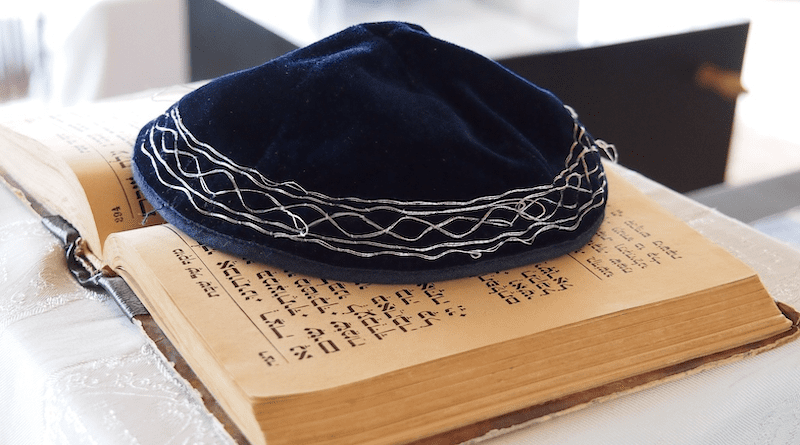Why All Epoch Calendars Are Religious – OpEd
Rosh HaShanah, the Jewish New Year of 5783 begins this year on the evening of September 25 and ends before sunset on September 26 for Reform Jews; and on September 27 for Conservative and Orthodox Jews. Rosh HaShanah ushers in a ten day period of seeking self-improvement by doing a self-judgement review of our deeds in the past year; and then making specific commitments to doing better in the new year.
The Islamic totally lunar calendar is the newest of the worldwide religious calendars and the easiest to use. The Egyptian totally solar calendar is the most accurate of ancient non-religious calendars. The Jewish lunar calendar is the oldest of religious calendars still in use, but for 32 centuries it has been adjusted to make it fit the solar calendar seasons so that the harvest holy week always falls in autumn.
Why have all epoch calendars been religious? There have been many calendars that were established to mark a new dynastic (political) era, but they all disappeared after a few centuries when the governing dynasty died out.
Religious calendars are different because major religions last much longer than political governments, and so their (spiritual) turning points are much more important.
Christians know their calendar starts from the birth of Jesus. Muslims know the Muslim calendar begins with the flight of Muhammad from Makkah to Medina. Buddhists know that their calendar starts with the enlightenment of Siddhartha under a Bodhi tree.
But most Jews would be hard pressed to explain what happened 5,783 years ago to start the Jewish Biblical calendar.
By analogy to the Christian, Muslim, or Buddhist calendars one might expect that the Jewish calendar starts with the birth of Abraham or Sarah (the first Jewish couple), or from the Exodus from Egypt (the trans-formative experience of the Jewish people), or from the giving of the Torah at Mount Sinai (the enlightenment of the Jewish people).
But the second century Rabbis who made up the calendar Jews currently use, chose to begin with Adam and Eve leaving the Garden of Eden i.e. the beginning of human civilization.
The word Adam in Hebrew means mankind/Homo Sapiens– the species. The exit of Adam and Eve from the Garden of Eden symbolizes the transition of humanity from a nomadic stone age society of hunter-gatherers, to a more advanced metal working, copper age, society of farmers and village dwellers.
By starting the Jewish calendar with a historical transition that would eventually have a universal impact on all of human society, the second century rabbis followed the lead of the Torah which also begins not with Judaism, but with the rise of the world’s earliest urban civilizations; and the beginning of written history.
All historical dates will fit into the Jewish calendar. In 3,700 B.C.E. the first century of the Jewish calendar, researchers recently concluded (Science News 9/21/13) Egypt started to evolve from a migrating population of cattle owners to a farming community of villages and a centralized state.
The earliest writing comes from the Mesopotamian city of Uruk (Genesis 10:10) and dates to about 5,400-5,300 years ago i.e. the 3rd or 4th century of the Jewish calendar. The development of writing in Egypt around 3,200 B.C.E. was in the 5th century of Jewish calendar.
The first dynasty in Egypt arose in the 7th century of the Jewish calendar; and the first stone pyramid was built in the 10th century. The famous king Sargon of Akkad (2371-2316 B.C.E.) lived in the 14th century of the Jewish calendar.
Abraham was not born till the 21th century of the Jewish calendar. It is only in the generations after Abraham that Biblical history begins to focus on the religious development of one specific people.
The Jewish calendar is not only the oldest of the world’s calendars, it is the only one that begins with the beginning of recorded human history. Everything prior to the Jewish calendar is oral prehistory.

